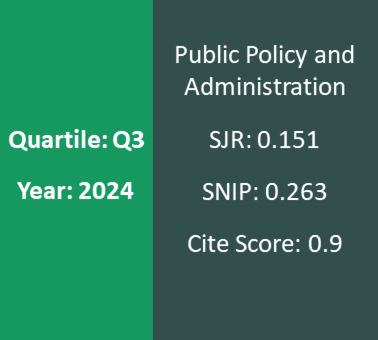Development of Trade and Regulation of Handling of Genetically Modified Organisms in Lithuania
Keywords:
public administration, genetically modified organisms, trade.Abstract
The issues of the modern biotechnologies seem highly important in the light of the numerous studies on
possible threats to human health and environment posed by GMO‘s. It might be considered, though, that the
industry of biotechnologies represents „the industry of the future“ that provides wide opportunities to improve the
well-being of people. However, one could admit that the latest technologies, having been influenced so much by
economy, national and global policies, various legislation and public pressure, might come into conflict with the
rapidly developing natural sciences. The governmental policies or lack of regulation, on the other hand, might
either prompt or staunch the investment in the industry and science. Eventually, the public opinion may play a
crucial role for the technology and industry innovations as well as for the market.
One can regard GMO‘s as a fairly new subject in Lithuania. It has not been a long time since the specialists first
became aware of GMO‘s. So that to ensure that the nurture, production, shipping, transfer and use of all modified
organisms are conducted with no or minimum detriment to biological diversity, and also having in mind the
possible danger of GMO‘s to human health, it is necessary to establish the biosafety system in Lithuania.
The fluctuations in social, economic, political and legal areas do influence the regulation of GMO‘s. So far the
Lithuanian legislation necessary to ensure proper use of GMO‘s has not been fully drafted and implemented. The
process of European integration and globalisation also has considerable influence on the spread of GMO‘s in
Lithuania. The EU policies in the field of GMO‘s make it necessary for Lithuania to establish legal and administrative
framework for the regulation of GMO‘s. The use of the GMO‘s in the business environment will be
hindered to a great extent by the complexity of GMO‘s regulatory activities, the expensiveness of GMO‘s and
GMP‘s legalization, the establishment of public awareness system, negative consumer outlook on GMO‘s and
promotion of sustainable agriculture. However, it should be said that in Lithuania the biotechnologies will inevitably thread their way in different areas as the GMO‘s and GMP‘s emission into the environment and supply to the
market have been increasing. In future when all the necessary regulations concerning GMO‘s will be adopted in
Lithuania these activities will grow in number as the result of the increase of the GMO‘s production and export.
Therefore it is of substantial importance for Lithuania to establish an efficient regulation of the GMO‘s that would
enable both to expand business activities in this field and to protect consumers.





